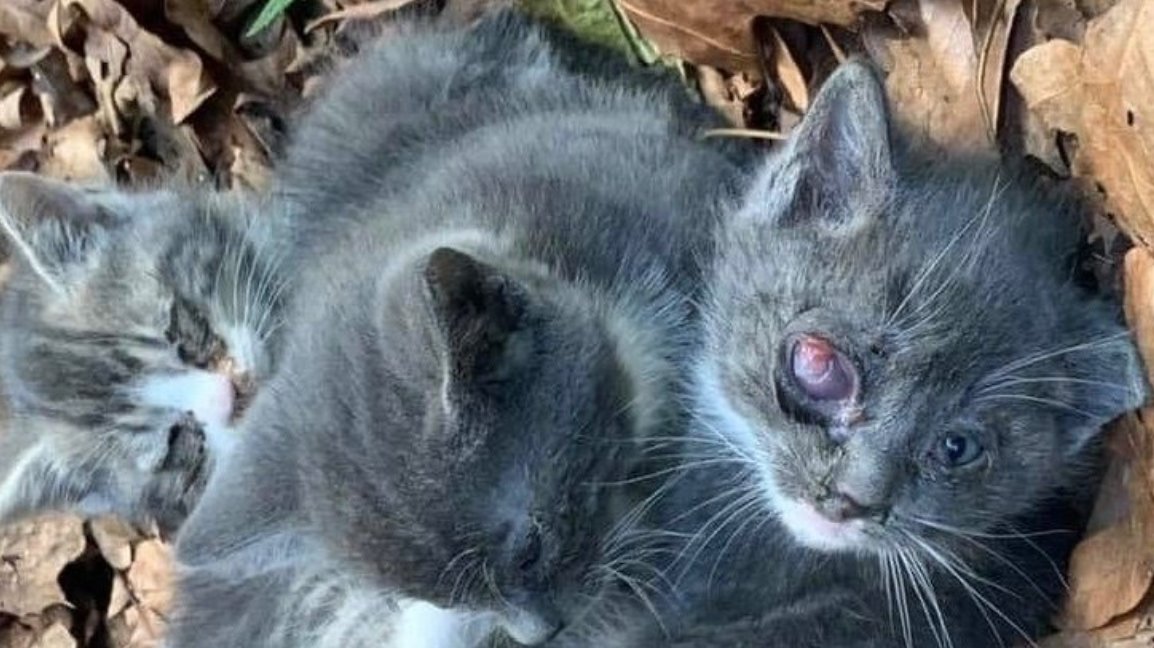Hempstead Town outsources trap-neuter-return program
Diane Madden, an animal advocate from East Meadow and co-founder of Hope for Hempstead Shelter, brought a gray and black kitten to the Sept. 22 Town of Hempstead Board meeting to show council members while she spoke about the consequences of outsourcing the town’s Trap-Neuter-Return program for stray cats.
An Elmont resident had found the kitten on the road with no mother and called Madden for help. She and other independent trappers say they have been swamped with phone calls from people not knowing what to do with the growing number of feral cats they are finding on their properties.
Before the Covid-19 crisis swept across Nassau County in mid-March, the Hempstead Town animal shelter, on Beltagh Avenue in Wantagh, ran a busy TNR program that took in many cats from independent trappers. The program spayed more than 18,000 cats from its launch in 2011 to 2020, controlling the feral population.
In March, however, the program was suspended because of Covid-19 restrictions, and in August, the Hempstead Town Board unanimously approved a plan to outsource the TNR program to Central Veterinary Associates in Valley Stream.
Renee Kraft, a Hempstead resident, animal advocate and independent trapper, started a Change.org petition, calling on Hempstead officials to reinstate the animal shelter’s on-site TNR program. As of press time, it had about 45,000 signatures.
She and Madden said they believe the program belongs at the town animal shelter. Town Supervisor Donald Clavin “is running a $5.5 million animal shelter with no animals,” said Madden, who in 2019 ran on the Libertarian ticket for Hempstead supervisor.
On Sept. 1, Central Veterinary Associates began accepting feral cats for TNR on behalf of the Hempstead Town animal shelter. Before Covid-19, the shelter allowed trappers to bring five cats daily. CVA’s TNR program, by comparison, is open three days a week and accepts two trapped cats per person. Any person dropping off feral cats must present identification and proof of town residency. CVA does not rent traps to the general public, but Hempstead’s animal shelter has.
“Everyone’s tried to compensate. I’m even trying to compensate,” Madden told the Town Board on Sept. 22. “When is the [shelter TNR] program getting reinstated?”
Clavin did not offer an answer.
Feral cats do not socialize with people and only associate with their colony members. Feral cats rarely make good house pets, and without the TNR program, they can quickly overpopulate an area, endangering backyard birds, squirrels and rabbits. Many residents resort to poisoning the cats.
Gerald Marino, the town’s Department of General Service commissioner, who oversees the animal shelter, said, “Hempstead Town’s trap, neuter and return program is currently operating,” but as an outsourced program. “Due to the worldwide pandemic, and in the interest of the health of the public, the volunteers and the employees,” he said, “there were modifications made to the process. The indications are that the TNR program is functioning well for our residents.”
Hempstead’s animal shelter now only offers adoption services. Tours of the animal shelter can be arranged for groups or organizations.
Councilman Bruce Blakeman said the shelter was closed to the public to help stop the spread of the coronavirus, in accordance with the advice of medical experts.
Madden pointed out, however, that before the pandemic hit, the TNR program was contactless. Trappers were told to drive around to the back of the shelter, open their car doors and let a veterinarian take traps with the feral cats.
Kraft said she started her petition after calling Clavin to ask why the TNR program had not resumed. She did not receive a call back, she said.
“It’s really an abundance of people [Clavin] has really upset,” she said.
Kraft noted that Central Veterinary Associates “is not central in Nassau County,” the way the town animal shelter is. “What am I supposed to do,” she asked, “drive half an hour to Valley Stream with one cat to get on line?”
Valerie Lampe, of Massapequa, which is not in the town, said a number of trappers who live outside Hempstead can longer take part in the TNR program because they are not residents.
“The Hempstead shelter worked very well with trappers and TNR ferals,” Lampe said. “Non-Hempstead trappers did a lot of trapping for Hempstead residents. It’s one of the reasons the program was successful.”
Three local animal organizations, Animal LifeLine, Last Hope and Tender Loving Cats, have depleted all their TNR funds, according to the groups. Because of reductions in the town program, they have been paying out of pocket to trap, neuter and return cats themselves, and donations to the organizations have declined owing to the ongoing economic crisis.

 49.0°,
Fair
49.0°,
Fair 




